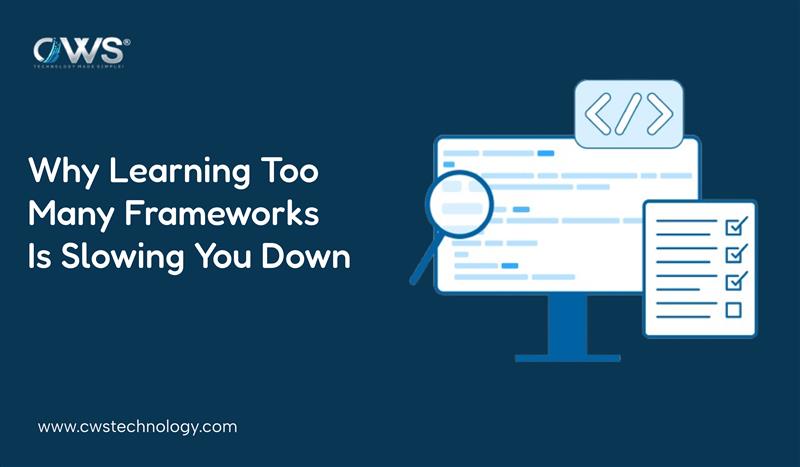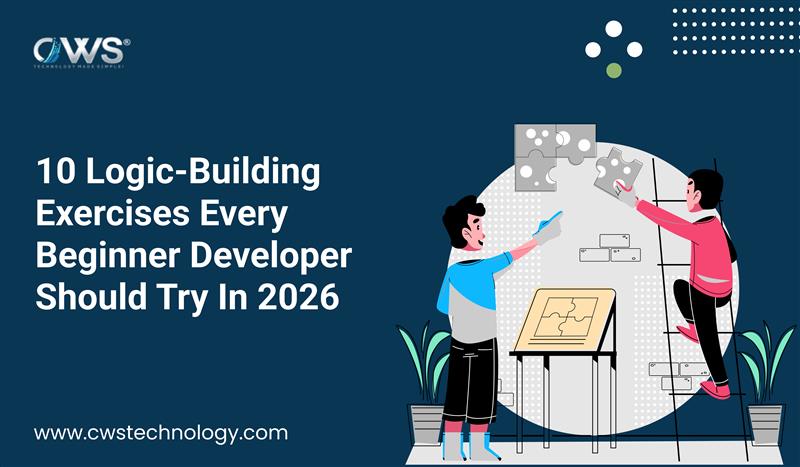The Endless Framework Race
Every few months, a new JavaScript framework, backend tool, or design library takes the spotlight. As a developer, it feels almost mandatory to chase the next big thing—whether it’s React, Angular, Vue, Svelte, Next.js, or the dozens of emerging backend options. Social media, job listings, and tech blogs all reinforce the idea that if you aren’t learning the latest framework, you’re falling behind.
But here’s the uncomfortable truth: learning too many frameworks is slowing you down, not speeding you up.
The Illusion of Progress
At first glance, adding another framework to your résumé looks impressive. It feels like growth. But often, it’s surface-level knowledge. You jump from one ecosystem to another, never truly diving deep into the fundamentals of programming or understanding why a framework behaves the way it does.
This constant switch creates the illusion of progress while leaving gaps in problem-solving skills. You may know what to type, but not why it works—or fails.
The Core Problem: Fundamentals Neglect
Frameworks are built on top of core principles: JavaScript, HTML, CSS, networking, design patterns, or even language-specific paradigms like object-oriented programming. Without strong fundamentals, frameworks are like shortcuts without a map.
For example:
- You might know how to fetch data in React, but without understanding how HTTP requests and promises work in JavaScript, debugging issues becomes guesswork.
- You might build a UI with Tailwind or Bootstrap, but without CSS fundamentals, you can’t fix layout conflicts when frameworks fall short.
Mastering the core foundation gives you transferable skills that survive long after frameworks fade.
The Productivity Trap
Every time you learn a new framework, you reset your productivity clock:
- You spend weeks reading documentation.
- You build small demos, but real-world projects take longer.
- You constantly Google syntax differences.
- You hesitate when problems don’t match the examples in tutorials.
Meanwhile, developers who focus on fewer tools but understand them deeply deliver faster, more reliable results.
Depth Beats Breadth in the Long Run
The industry doesn’t reward knowing “a little bit of everything.” It rewards problem solvers. When you understand core principles, switching frameworks becomes easier because you’re not relearning programming—you’re just adapting syntax and structure.
A senior developer isn’t someone who knows every framework released in the last five years. It’s someone who can:
- Analyze a problem clearly.
- Choose the right tool intentionally.
- Build solutions that scale beyond frameworks.
The Human Side: Burnout and Confidence
Beyond code, chasing endless frameworks leads to burnout. You never feel “enough,” always running behind. This mindset hurts confidence and creativity. Instead of building impactful projects, you spend your energy jumping between trends.
When you shift focus to depth over breadth, you gain confidence. You’re no longer tied to the rise and fall of frameworks—you build from a strong foundation.
How to Break the Cycle
Here’s a practical approach to avoid framework fatigue:
- Master Core Concepts: Prioritize JavaScript, design principles, and system architecture over syntax.
- Pick One or Two Frameworks: Go deep—explore advanced features, performance optimization, and scalability.
- Build Real Projects: Apply what you know to meaningful projects instead of endless tutorials.
- Stay Curious, Not Overwhelmed: Keep an eye on trends, but don’t chase them all. Choose what aligns with your goals or industry demand.
- Document & Reflect: Write blogs, notes, or internal guides. Teaching solidifies learning more than surface exploration.
Slow Down to Go Faster
The fastest way to grow as a developer is not by adding every shiny new framework to your toolkit. It’s by understanding the foundations that make all of them work.
Frameworks will keep evolving—but fundamentals remain constant. By slowing down, focusing on depth, and mastering fewer tools, you ultimately move faster, build better, and grow into the kind of developer the industry truly values.








